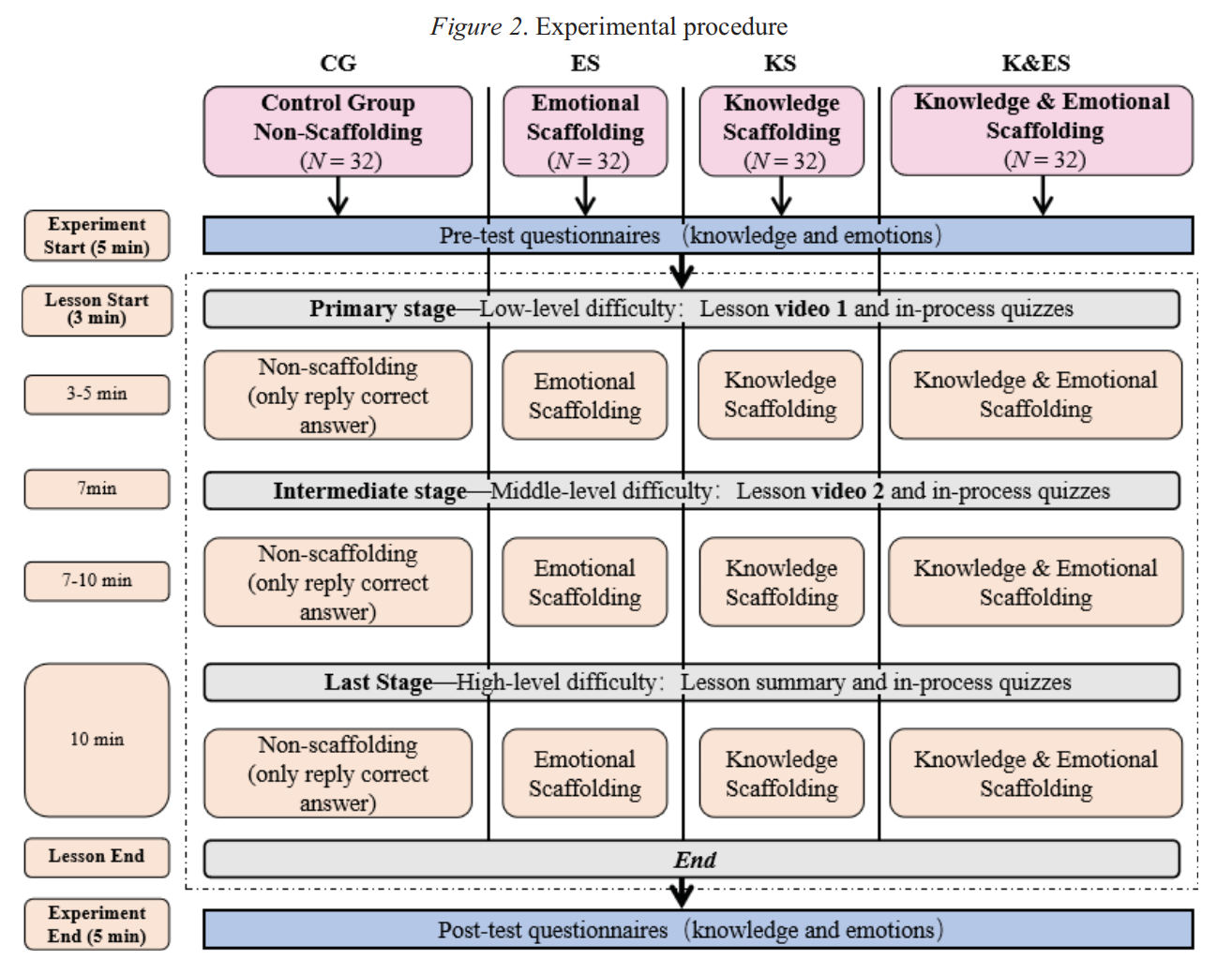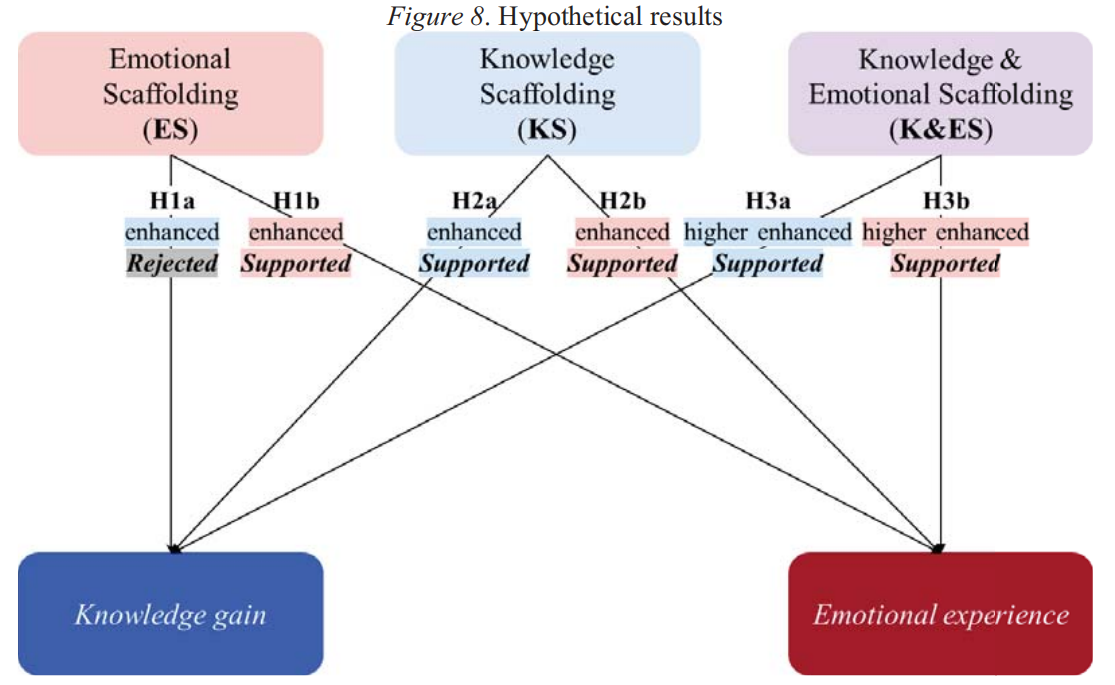引用:Liu, Z., Duan, H., & Liu, S. (2024). Improving knowledge gain and emotional experience in online learning with knowledge and emotional scaffolding-based conversational agent. Educational Technology & Society : Journal of International Forum of Educational Technology & Society and IEEE Learning Technology Task Force., 27(2), 197–219. https://doi.org/10.30191/ETS.202404_27(2).RP08
https://research.ebsco.com/c/bu767h/viewer/pdf/jw7pgkynwj?route=details
一、研究背景
在线学习中,学习者缺乏与教师的实时互动和反馈,导致学习效果受到影响。对话智能体(CAs)的出现为解决这一问题提供了可能,但目前知识支架(KS)和情感支架(ES)的设计缺乏系统性,且两者对学习成果的交互影响尚不明确。
二、研究目的
本研究旨在提出并实施 KS 和 ES 的设计原则,探索不同支架的对话智能体(CAs)对学习者知识获取和情感体验的影响,优化基于视频的在线学习方法。
三、研究对象
128 名非计算机专业本科生为参与者。
四、研究方法
采用准实验研究方法,将参与者随机分为无支架对照组(CG)、情感支架组(ES)、知识支架组(KS)和知识与情感支架组(K&ES)。以 Python 课程中的字典结构知识为学习内容,通过前测问卷了解参与者的先验知识水平、情感状态等信息,后测问卷评估学习后的知识水平和情感体验变化。实验过程中,参与者观看课程视频并与相应的 CA 进行互动,同时完成不同难度阶段的测验和情感自评。

五、研究结果
- 描述性统计结果
所有组在知识保留和转移的前测与后测均值上均有显著差异,组间比较时,前测显示各组知识水平无显著差异,保证了实验的同质性;情感体验类似。
- 具体结果
K&ES对知识获取和情感体验有显著影响;KS 对知识获取和情感体验有积极影响;ES仅在情感体验方面相比控制组有轻微改善。
具体表现为,K&ES 组在知识保留和转移上优于控制组,KS 组在知识转移上优于控制组;在情感体验方面,ES组能显著降低学习者的认知负性情绪;KS组在提升成就正性情绪和降低成就负性情绪上效果明显;K&ES 组在提升认知和成就正性情绪,以及降低认知和成就负性情绪方面,均表现优异。
此外,研究还发现成就积极情感与知识转移显著相关,强调了整合 KS 和 ES 的重要性。

六、亮点和启发
1、设计原则的系统性:研究提出了基于最近发展区和成长心态理论的系统 KS 和 ES 设计原则,为对话智能体(CAs)的设计提供了全面的理论框架。
2、研究视角的创新性:以往研究多单独关注 KS 或 ES,且对两者结合的效果存在争议。本研究聚焦于 KS 和 ES 的联合作用,探究其对学习者知识获取和情感体验的综合影响,填补了这一研究空白,为深入理解 CAs 在在线学习中的作用机制提供了新的视角。
3、实验设计的严谨性:通过准实验设计,将 128 名本科生分为四个不同的组,分别对应不同的 CAs,控制了参与者的先验知识等变量,确保了实验结果的可靠性。同时,使用多种测量工具,如前测问卷、后测问卷、测验和情感自评等,从多个维度收集数据,全面评估了学习者的知识获取和情感体验变化。
4、情感与学习关系的深入剖析:研究发现成就积极情感与知识转移之间存在显著相关性,强调了情感因素在学习过程中的重要性。这提示教育者在关注学习者知识获取的同时,也要重视培养学习者的积极情感,以促进学习效果的提升。
